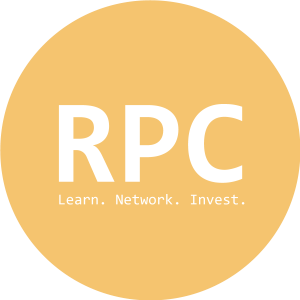Earlier this month, I wrote an article How to Become a Property Investor. But that is written specifically for property investor. If you want to become sophisticated investor, you will need more than just the knowledge of investing in property. A good investor sees opportunities. And before that, a good investor is well prepared. How investors become rich and wealthy is when preparation meets opportunities. That’s success!
Let’s dive right in.
1. Understand the difference between investing and speculation
Investing is an asset allocation strategy, whereas speculation is a risky investment. Which I don’t personally consider speculation is an investment. It is more like a gamble.
Investment is a way to make money by allocating your funds in different investments and generating returns.
This is the thing that most beginners will ask. What is the desirable return?
The answer is simple.
We benchmark against the safest investment with highest return available to us. For example, in Malaysia the safest and highest return kind of investment is Employee Provident Fund (EPF). You might find something similar in your country.
Any investment that can generate return higher than EPF, should consider a good investment. But you have to make sure that investment is a sound investment. Just because the investment is giving high return, doesn’t mean it is safe to invest. So, proceed with caution before you invest any of your hard earn money.
In the modern world, there are many ways to invest your money. One tried and true method is buying stocks. Investing in stocks can be a great way to make money over time by turning your initial investment into a large nest egg. If you want to grow your money fast, then invest in stocks. But if you want stable investment, then it is property.
With the rise of cryptocurrencies, speculation has become a common activity. Speculation is an investment in a product or asset that does not have any specific goals or targets. These investments are often risky, which means the risk of losing money is high.

2. Invest in yourself by learning about finance and building a strong network
Learn, learn and learn.
I can’t stress hard enough for this. All seasoned investors, whether they are stocks investors or property investors they all have the same behaviour, which is continuous learning. The market is keep evolving and things certainly changed for the past 20 years. Thus, if they (the experienced investors) keep on learning, then why not you?
Financial literacy is very important for people to be successful in general, but it’s especially true as you start your career. Knowing how to manage money, create a budget, and make smart decisions with your paycheck will help you grow more quickly than someone who doesn’t.
Track your expenses and cut those spending that you don’t need. These days, it would be much cheaper if you subscribe to Netflix than Astro.
Tips for stocks investors
Did you know that companies that provide cable TV (satellite TV) will soon be replaced with internet? The change in consumer behaviour will determine whether a company will survive in the future or not. People are shifting to internet TV from traditional broadcast TV. Not only the installation is messy but the subscription cost is high as well.
The other industry that will soon diminished is newspaper agency. Unless they shift their business model to online, otherwise they will not survive too.
Now being an investor, this is what we see. We look at the trend and predict what is likely to happen in the future.
Building a strong network
A strong network is crucial for professional success. It can help you find a job or get a promotion; it can be the difference between getting that good deal on rent or not; and it can provide the support you need when things go wrong. Remember this,
NETWORK = NET WORTH
Successful networking is like a game of chess. You need to know when to play with someone and when not to. Networking helps you build a strong network and gain access to new opportunities.
If done correctly, then you will have access to all the knowledge that you can ever wish for, will make new friends and contacts that could potentially help you in your business ventures, or money making opportunities.
Which was why networking is so important in today’s world because it assists in building the ultimate long term wealth.
3. Be disciplined in your approach – Track your progress, follow trends, identify performance metrics
Many people overlooked the importance of tracking the progress.
I’m guilty as well.
I tend to invest into something but sometimes I don’t follow through by analysing what could potentially go wrong or perhaps how to improve to generate even higher return.
If you are investing in property, instead of calculating the rental yield based on gross annual rental, you should calculate net rental yield instead. This is after you deduct any expenses e.g. quit rent, assessment, maintenance fee etc. Most often we tend to be happy receiving monthly rental but we don’t track if the yield has dropped over the years due to increasing cost of holding the property.
If you are investing in stocks, then it depends on if you are fundamental analysis or technical analysis type. If you are investing long term with financial analysis, you should be reviewing your portfolio every six month. To make sure your selection of stocks are still doing good. In addition, record all dividends paid and channel them back into your trust account. With this simple step, your average price per share should be lowered over the years.
Technical analysis usually won’t be much problem in terms of keeping track of stocks as they are usually keep for two days up to few weeks. Even so, traders need to keep track of all cost incurred e.g. brokerage fee. High frequency of trades increase your overall cost especially you don’t make enough profit when you exit the stocks.
Related: What is Due Diligence in Real Estate
4. Avoid getting emotional and don’t invest more than you can afford to lose
We get emotional about our finances. It’s natural. And it’s always a bad idea to take on more than you can afford to lose, or invest in something without doing your research.
But what if we take this one step further? What if we get so emotional that we make financial decisions that are irrational? When we spend money on things that don’t matter to us anymore, or put money into investments without knowing what they are?
This is what I shared in my book Best Time To Invest in Property on whether you should proceed to invest in an investment. Answer these six questions then you’ll know if you should invest;
- What is the return on investment?
- How long (year) does it take to get the returns?
- How much capital do I need?
- Do I understand the background of this investment?
- What is the security in place to protect my capital?
- How to exit?
The questions above are applicable to any kind of investment. If you able to answer all of the questions above without any doubt, then it is a green light to proceed with the investment.
5. Focus on diversification by avoiding ONLY ONE investment
Investors should not just invest in one stock or sector. Or even just invest in property.
The goal should be to diversify their portfolio to avoid any sudden changes in a single market be it property or stocks. Avoiding single type or class of investment is the key to a good investment strategy.
You will be lucky if you made it through in your investment properties that offer short-term stay via AirBnb during this pandemic outbreak. Even stocks are not spared. Your stocks portfolio were likely plunged by 50% last year.
If you diversified your investment portfolio, you are technically managing the risk better than those that did not.
To diversify, an investor needs to explore different investment classes. These can be stocks, property, businesses, cryptocurrency, forex, commodities etc.
If you are financially able and have enough experience, do consider to diversify your investment overseas.
6. Develop a comprehensive financial plan that serves as the roadmap for your financial life’s journey
A comprehensive financial plan is a detailed roadmap that serves as the blueprint for your financial life’s journey. It is designed to help you reach your goals and dreams while taking into account your needs, time horizon, resources, and constraints.
Creating a plan like this will not only help you achieve your goals but it will also provide peace of mind by removing uncertainty about the future. The more you know about what to expect, the less likely it is that you will experience any surprises.
7. Build a diversified portfolio by balancing assets like stocks, bonds, real estate, cash equivalents and more
As mentioned in point no.5, diversification through proper portfolio management is highly recommended.
The first step to building a diversified portfolio is determining your risk tolerance.
Diversification is important in a portfolio for greater returns. However, it is not the case that more risk means higher returns.
Risk tolerance should be considered when investing in a portfolio. A person’s risk tolerance will determine the amount of investment in stocks, bonds, property etc. within their portfolio.
The first step to building a diversified portfolio is determining your risk tolerance. Ask yourself if you are aggressive, conservative or somewhere between these two extremes before you invest any money or create any financial goals with a specific asset allocation plan in mind.
The second step to building a diversified portfolio is determining your goals.
Investing is a difficult endeavour, and it can be even more intimidating for those who don’t have a lot of experience. But even if you’re relatively new to investing, you should still try to diversify your portfolio. For example, one of the most common strategies is to split your money between stocks and bonds.
Some people might also want to consider investing in different assets like property.
Lastly, choose and invest in what best fits you.
Conclusion
With these 7 steps to think like an investor you’ll be set!
You need to think like an investor.
For those with limited capital, you could start off by investing in stocks first. You can start to invest in stocks with little capital.
Now, the first step is understanding the risks. There are many different types of risk, such as market risk, country risk, and region risk.
The second step is understanding the various investment options and how they work including stocks, bonds, mutual funds, ETFs and more. The third step is understanding the importance of diversification which can be done by balancing your portfolio with stocks from different regions as well as different industries.
The next four steps are a bit more complicated and require more research on different topics such as reading financial statements or knowing about price-to-earnings ratios or market capitalizations.
For those who need help with these steps there are many investing resources available online for free like Investopedia, which I frequently quote in my writings.
Once you gain profit from stocks, then you need to plan ahead to diversify into property or business. Remember point 5 above!

I hope you gain some insights from my comments above. If you want to learn more about property investment, watch my YouTube videos by clicking the banner below.








